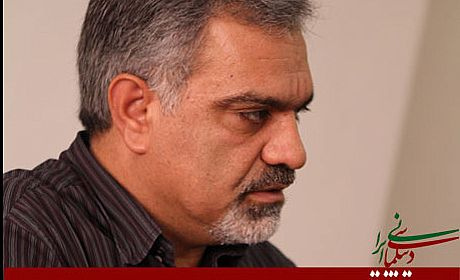Revolution or Reform?

The question, raised since two years ago, of whether the Arab World has the needed grounds for democracy or not is still discussed. The experience is neither encouraging nor hopeful. It was also said at that time that since the formation of Arab governments and the dissolution of the Ottoman Empire, only one country, Lebanon, has to some extent experienced democracy and held elections. In 2003, based on Lebanon’s experience, Iraq attempted to experience democracy based on ethnic divisions but it was not encouraging for Arab uprisings. Four lifelong rulers in the Arab states were overthrown, and at least in the two countries of Syria and Bahrain, the situation is very critical and it still cannot be said that the situation is calm in other Arab states. But the question that still remains is whether the path for the Arab world to move towards democracy is through reform or revolution?
In a country like Morocco, reforms took place and the situation there is apparently calmer than in other countries. I believe that the problem that exists in the Arab world and prevents it from reaching democracy is independence and tribalism. The Arab World is not an independent world and no development is made there without foreign intervention. It has always been like this in the past. During the past two years as well, the downfall of the four dictators could not have happened without foreign intervention and Hosni Mubarak and Qaddafi would still be present in the political scene. In line with this, if we look at the volume of protests in Bahrain, we see that this country is very much prepared to have a revolution, for, at the present time, 70% of the people have poured into the streets, but after two years, nothing has happened because the international community and foreign players have not reached an agreement with regard to changes in Bahrain.
The other problem which became more apparent in Iraq was tribalism. This tribalism is both religious and ethnic and racial and this prevents political parties from being formed in the Arab world. All the parties that exist in the Arab world are ethnic and religious. If we look at Iraq, there are the three groups of Shiites, Sunnis and Kurds and any party which is formed is in line with the interests of these three groups. Therefore, due to political rivalries, no party has yet been formed in the Arab world.
Impacts of Developments on the Persian Gulf Region
Since the beginning, the question has been whether these developments would reach the Persian Gulf region or not? The fear of the possibility of the repetition of revolution was spread to rulers of the Persian Gulf region, but it seems that Saudi Arabia and the Persian Gulf Cooperation Council gradually dominate the developments and or even lead them. Part of this domination is due to their own management and part of it is due to unstable conditions in other countries where developments have occurred.
Saudi Arabia has always made use of two tools to dominate its foreign problems and challenges:
1. Money
2. Security means, the axis of which has always been Salafism and radical movements
It has used the same two tools in Egypt, meaning that by spending money, it was able to gain 25% of the votes in Egypt's elections. The Salafi Party which was formed in Egypt was founded by Saudi Arabia. The Muslim Brotherhood was forced to unite with this party to fight against the secular movements. Furthermore, part of the people have inclinations towards the Salafi movements and as you have witnessed they gained 25% of the votes. Money is another tool, for the Muslim Brotherhood needs financial aid and this money is also used to create problems in the path of democracy in Egypt.
Saudi Arabia’s other problem was the Muslim Brotherhood’s movements inside Saudi Arabia and the Persian Gulf region. Many young Salafi scholars revealed their inclinations towards the Muslim Brotherhood after these developments. In Saudi Arabia, many of the well-known middle-aged scholars seek a constitutional monarchy where the institutions should be separated and this contradicts the basic principles of Salafism. By definition, in the political jurisprudence of Salafism, nothing can prevent the implementation of Islamic laws including elections and the separation of institutions. But Saudi Arabia, contrary to the United Arab Emirates which fearfully and directly confronted the Muslim Brotherhood, attempted to manage the situation. As you know, the Emirates began to confront the Muslim Brotherhood since the first days and arrested many of its members. While they attempted to create an understanding between the government and the Muslim Brotherhood in Saudi Arabia, Morsi's first visit was to Saudi Arabia and the Saudis welcomed it. This visit had different meanings, one of which was that Saudi Arabia did not intend to fight against the Muslim Brotherhood from the beginning when it was gaining power in the Arab countries. The second message was for the domestic forces of Saudi Arabia, stating that they can both help the Muslim Brotherhood and prevent their coming to power at the same time.
In 2003, when the government in Iraq was changed with foreign intervention, the issue that was discussed was whether it is possible to create democracy in the Middle East with the involvement of foreigners or not? The response at that time was that yes, it was possible and the examples are Japan, Germany, and the former Yugoslavia where democracy was established with the help of foreign intervention. But democracy in Iraq was not encouraging for the Arab world and immediately transformed into ethnic disputes. The difference the Middle East seems to have with Japan, Germany, and other experiences is the existence of oil in the Middle East and tribalism and ethnic differences in this region. In summary, the main obstacles facing democracy in the Arab world are independence, tribalism and ethnic differences.

